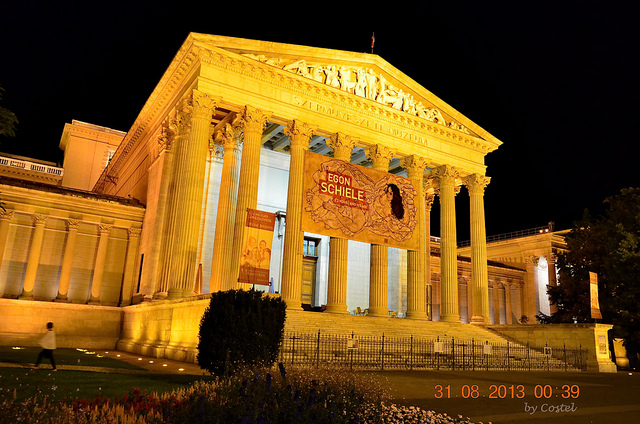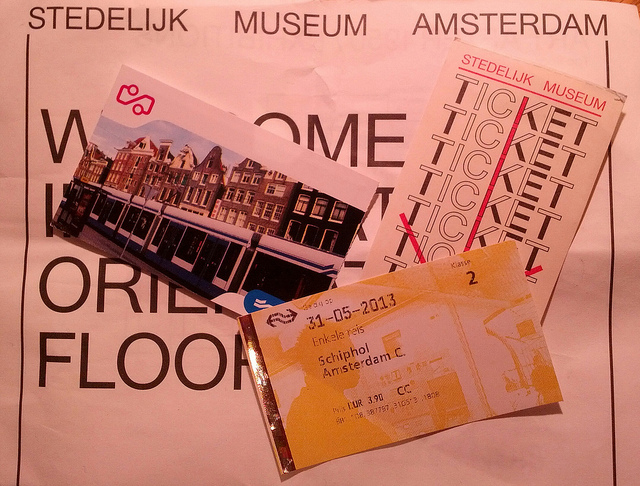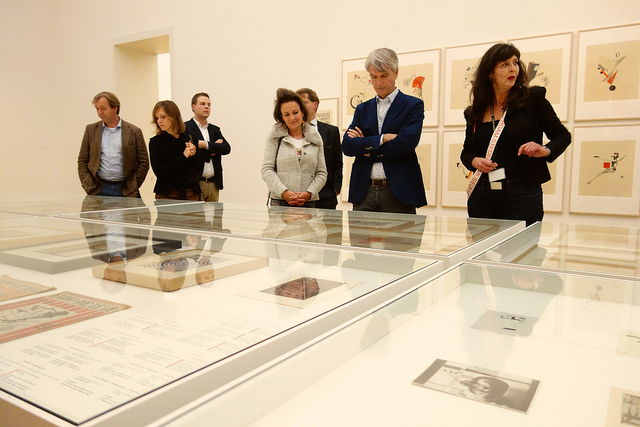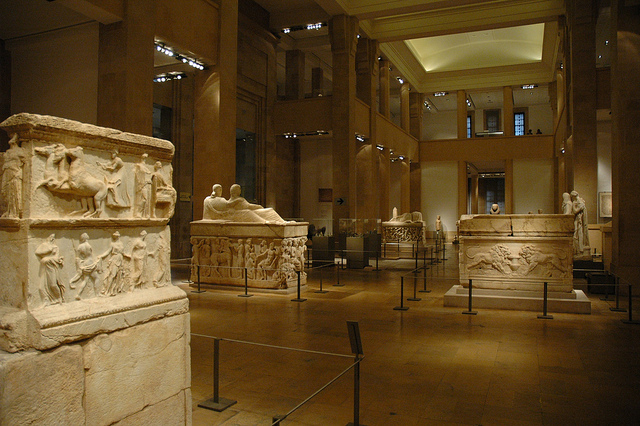The 8 Must Know Arabic Phrases for Visiting a Museum Posted by jesa on Jun 16, 2015 in Arabic Language, Culture, Vocabulary
Marhaba! As you can see from my earlier posts on essential phrases for traveling and dining in the Arab world, I am hoping to provide you all with a useful and basic guide that will allow you to chat with locals in any Arab country that you plan to visit and hence, allow you to make the most out of your time. Today I want to provide you with what I think are the 8 essential Arabic phrases for visiting a museum or attraction during your stay in a beautiful city somewhere in the Arab world. Let’s begin with the basics. I have also translated the phrases to Arabic and I have transliterated the phrases so that you are able to pronounce them. I have added them in form of dialogue to give you a sense of how the conversation might take place. Please note that there are many dialects in different Arab countries. Nonetheless, these basic phrases will be understood by almost anyone in the Arab world.
Amin and Raghida want to visit one of the country’s most renowned museums and attractions.
1) Amin: Greetings. Do you know how I can get to the national museum?
أمين: مرحبا. هل تعرف كيف أصل الى المتحف الوطني؟
Amin: Marhaba. Hal ta’rif kayf asil ila al-mathaf al-watani?
Hotel Staff: Greetings. Yes, take a taxi and tell the driver to drop you off next to the sports stadium.
موظف الفندق: مرحبا. نعم, خذ سيارة اجرة واطلب من السائق ايصالك بالقرب من مدرج الرياضة
Muwathaf al-funduq: Marhaba. Na’am, khuth sayyarat ujra wa-tlub min al-saiq iysalaka bil-qurb min madraj al-riyada.
Amin: Thank you.
أمين: شكراً
Amin: Shukran.
Amin and Raghida arrive to the museum.
2) Raghida: Greetings. How much is the entry ticket to the museum and exhibits?
راغدة: مرحبا. بكم بطاقة الدخول الى المتحف والمعارض؟
Raghida: Marhaba. Bikam bitaqat al-dukhul ila al-mathaf wa al-ma’arid?
Museum Staff: 10, 000 Lebanese liras.
موظف المتحف: بعشرة آلاف ليرة لبنانية
Muwathaf al-mathaf: Bi-asharat aalaf lira lubnaniya
3) Amin: Why time does the museum close?
أمين: أي ساعة يغلق المتحف؟
Amin: Ay sa’a yughlaq al-mathaf?
Museum Staff: At 6:00 PM
موظف المتحف: الساعة السادسة مساءً
Muwathaf al-mathaf: al-sa’a al-sadisa masaan.
4) Raghida: Are we allowed to take any pictures?
راغدة: مسموح أخذ الصور؟
Raghida: Masmuh akhth al-suwar?
Museum Staff: All photos are prohibited.
موظف المتحف: كل الصور ممنوعة
Muwathaf al-mathaf: Kul al-suwar mamnu’a.
5) Amin: Do you have any tour guides?
أمين: هل لديكم مرشد سياحي؟
Amin: Hal ladaykom murshid siyahi?
Museum Staff: Yes.
موظف المتحف: نعم
Muwathaf al-mathaf: Na’am.
6) Raghida: Do these tour guides speak English and Arabic?
راغدة: هل يتكلم المرشدون الانكليزية والعربية؟
Raghida: Hal yatakalam al-murshidun al-inkliziya wa al-arabiya?
Museum Staff: Yes
موظف المتحف: نعم
Muwathaf al-mathaf: Na’am.
7) Amin: Do you have a souvenir shop?
أمين: هل لديكم متجر تذكارات؟
Amin: Hal ladaykum matjar tithkarat?
Museum Staff: Yes, on the other side of the museum entrance.
موظف المتحف: نعم, في الجانب الآخر من مدخل المتحف
Muwathaf al-mathaf: Na’am, fi al-janib al-aakhar min madkhal al-funduq.
After Amin and Raghida stroll around the museum and different exhibits
8) Amin and Raghida: Thank you so much. We are glad that we were able to visit this museum.
أمين وراغدة: شكراً جزيلاً. نحن سعداء اننا قمنا بزيارة هذا المتحف
Amin wa Raghida: Shukran jazilan. Nahnu su’ada anana qumna bi-ziyarat hatha al-mathaf.
For now take care and stay tuned for upcoming posts!
Happy Learning!
Have a nice day!!
نهاركم سعيد

Build vocabulary, practice pronunciation, and more with Transparent Language Online. Available anytime, anywhere, on any device.
About the Author: jesa
Salam everyone! Born as an American to two originally Arab parents, I have been raised and have spent most of my life in Beirut, Lebanon. I have lived my good times and my bad times in Beirut. I was but a young child when I had to learn to share my toys and food with others as we hid from bombs and fighting during the Lebanese Civil War. I feel my connection to Arabic as both a language and culture is severing and so it is with you, my readers and fellow Arabic lovers, and through you that I wish to reestablish this connection by creating one for you.







